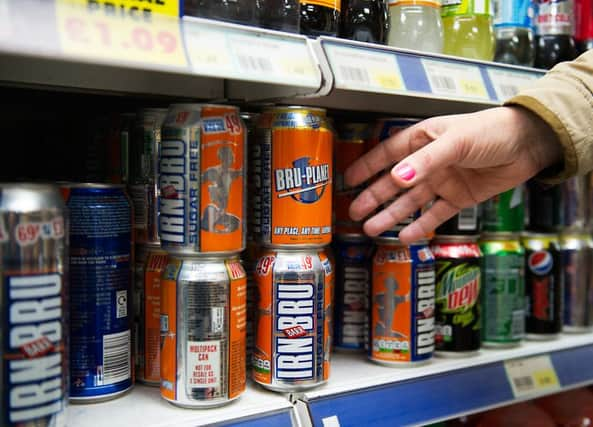Leader: Sugar tax raises the Barr in battle against obesity


So when Chancellor George Osborne unveiled plans for a sugar tax in his Budget earlier this month, it was immediately branded the “Irn-Bru levy” north of the Border. It prompted immediate concerns about the impact on the manufacturer AG Barr– and whether the sacred “bru” would taste any different.
The Chancellor’s intervention came after a growing body of evidence showed the culpability of sugar and it’s derivatives like fructose in the obesity epidemic so prevalent in the UK and across the developed world. This followed a generation of health advice suggesting that saturated fat was the cause of the problem. The sight of celebrity chef Jamie Oliver, a key figure in the sugar awareness campaign, yelping with delight on television at the news seemed to mark the point when the issue crossed into the mainstream.
Advertisement
Hide AdAdvertisement
Hide AdIt prompted questions over how the drinks industry would react and just a week later reports emerged of a looming court challenge. This has since been dismissed as premature, but a similar measure has already been challenged in Scandinavia. Coca-Cola went on the offensive, insisting that the Chancellor’s measure flies in the face of international evidence which, it is claimed, does little, if anything, to reduce sugar and calorie intake or obesity levels – while adding to people’s cost of living. But firms must be wary of reputational damage in blocking a measures seen to be in the wider public interest. It remains to be seen what public backlash the alcohol industry in Scotland may face if it is successful in its legal challenge to a minimum alcohol price north of the Border. So it is welcome that Barr has ruled out joining the legal challenge which is under consideration.
The impact on Barr’s iconic Irn-Bru product is another matter. Chief executive Roger White made vague allusions to “ongoing product reformulation” and April 2018. But the firm does expect at least two-thirds of its drinks to be lower or no sugar, and escape the levy. This compares with 40 per cent at the moment, a welcome reduction in sugar levels.
The question that remains is whether the sugar tax will stop at sweet drinks or be extended to other products like sweets, yoghurts and breakfast cereals. Finland already has extra taxes on chocolate and ice cream introduced in 2011. Government health minister Professor Ivo Vlaev indicated this may be the direction to travel, admitting recently that the sugar tax may not cover enough ground. The problem with restricting it to just sugary drinks is that people turn to substitutes, he said.
Logically all products with excess sugar should be subject to the sugar tax. It may be that Scotland’s iconic confectionary and ice-cream brands may have to follow AG Barr in considering the sugar content of their products – it would be inconsistent if the government left them out of scope.